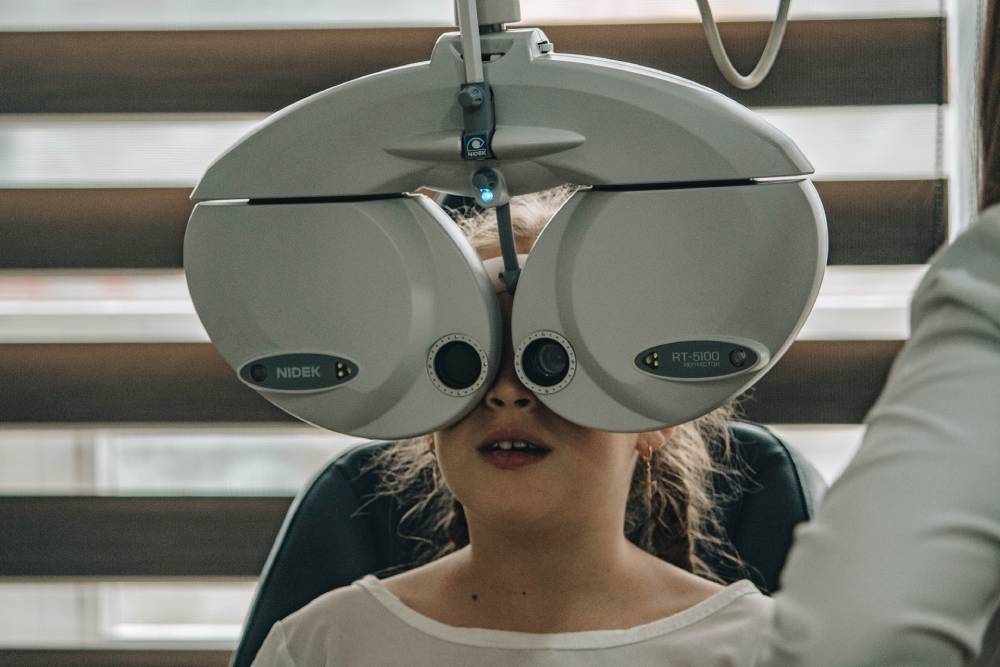Just like your routine physical health check-up, regular eye tests should also be an essential part of your healthcare routine. Changes in your eyes’ health can happen gradually and you might be unaware of it.
Regular testing of eyes will help you to detect issues at an early stage, so that you can correct or prevent the condition from further worsening. It also helps in preventing any permanent damage to your eyes.
Optometrists and ophthalmologists are healthcare professionals who usually test your vision to determine which power eyeglasses you require and also check your eye for other eye diseases, examine working of your eyes, and also evaluate your eyes as an indicator of your overall health.
Difference Between Vision Screening and Eye Test
A very common mistake we normally do is to assume vision screening and eye test as the same thing, and that is not true at all. They both are entirely different from each other.
Vision screening is a basic test of eyes that helps to identify if you have any issue with your vision, but it doesn’t tell you anything about any potential eye disease or underlying reason for your vision problem. However, it does signify whether you should go for a complete test or not, but it can’t be taken as a substitute for such a test.
A complete eye test, on the other hand, is done by an eye doctor known as ophthalmologist who examines your eye from all aspects of potential eye conditions. After examination, the ophthalmologist might recommend prescription lenses, eye exercises, eye drops, or even surgery if the problem is critical and requires immediate action.
Reasons for Regular Eye Tests
It is normally said that everyone should have their eyes tested regularly, though its frequency depends on your age, your health and your risk of developing eye problems. Doctors generally recommend to go for such a test at least every two years, even if your eyes are absolutely healthy.
Besides routine eye check-ups, there are certain conditions under which you need to go get your eyes tested more frequently, if you have any of the following health issues:
- Diabetes
- High Blood Pressure
- Stroke
- Neurological condition
- Astigmatism – blurred or distorted vision at all distances
- Glaucoma – increased pressure in the eye that can cause loss of vision
- Retinal Detachment – back layer of the eye separates from the blood vessels
- Cataract – clouding the lens of the eye
Different Types of Tests for Eyes
During a complete eye checkup, ophthalmologists use a range of tests to examine how well you can see and check the health of your eyes. They can ask you questions about your family history, past and present medical issues, medications you might be taking, injuries and other factors. You need to answer these questions genuinely for the best possible outcome of the examination.
- Visual Acuity: This is a test to measure the sharpness of your vision.
- Colour Blindness: This is a screening test to check your colour vision for colour blindness.
- Cover Test: This is the simplest and easiest way to check if your eyes work well together.
- Ocular Motility or Eye Movements: This is a test to determine how both eyes co-ordinate with each other to capture a moving or fixed object. Any error in this test signals that you might have eye strain and difficulty in reading too.
- Glaucoma: This eye test examines the pressure in your eyes, and is always included in a comprehensive eye examination.
- Slit Lamp Exam: This is a particular test that ophthalmologists usually perform to thoroughly examine the structure of your eye under high magnification. This thorough examination helps to detect in advance a wide range of eye conditions and diseases, including cataracts, macular degeneration, corneal ulcers, and diabetic retinopathy.
Tests As Per Age
At young age, we often overlook the need for regular testing of eyes. However, age and physical fitness should never be the criteria for getting eyes checked, as eye problem can occur at any phase of life.
Moreover, with the increase in use of digital devices, there is a significant increase in vision issues among children. So, this makes regular tests for children all the more important than ever to identify and treat their vision problems as soon as they occur.
Conclusion
So, this was a brief overview of the importance of eye test and different types of tests you can go for. In this era of digital world, our eyes are stressed the most with continuous usage of digital devices. So, it’s our duty to get them examined regularly and take care of them as they are precious gifts from God.






